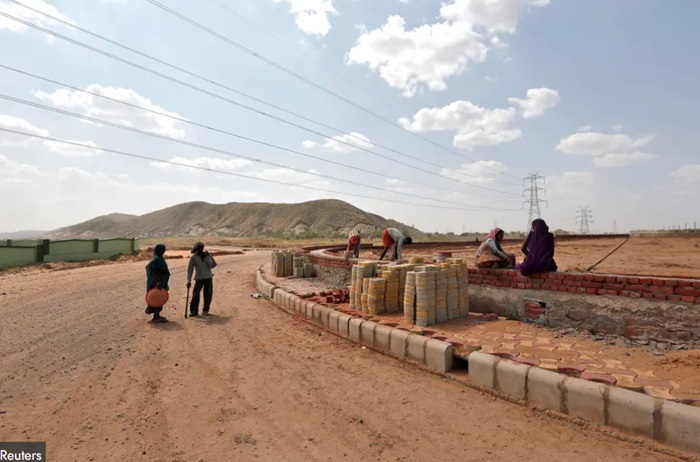
The UAE has signed an investment memorandum with the Indian state of Rajasthan to explore a 60 gigawatt renewable energy project, focusing on solar, wind and hybrid power.
The UAE Ministry of Investment said the agreement builds on a broader Investment Cooperation pact between the UAE and India’s Ministry of New and Renewable Energy.
Rajasthan, with its vast land area and favourable climate, is central to India’s transition from fossil fuels. The state gets more than 300 sunny days a year, making it ideal for large-scale solar projects, while the Thar Desert’s strong wind currents offer significant potential for wind power.
The UAE will appoint a developer for the project, although no financial details or timeline have been disclosed.
UAE minister of investment Mohamed Hassan Alsuwaidi said in a statement that meeting future energy needs through renewable methods is a priority. The project aligns with the UAE’s clean energy strategy, which aims to invest more than $163 billion in renewables by 2050, he added.
Both nations are ramping up efforts to hit climate targets.
The UAE aims for 50 percent of its energy mix to come from renewables by 2050. India, which says it is already nine years ahead of its goal with 40 percent non-fossil fuel capacity, is positioning itself as a global leader in green hydrogen, with its $2.4 billion National Green Hydrogen Mission.
Rajasthan is pivotal to India’s plan to cut carbon intensity by 45 percent by 2030 and achieve net-zero emissions by 2070.
India is currently the world’s third-largest producer of renewable energy.
For the UAE, the deal is part of a broader strategy to expand its clean energy investments as it works toward its 2050 net-zero target.
Despite progress in India’s regulatory and tax reforms under prime minister Narendra Modi, Gulf sovereign investors have faced delays because of bureaucratic inefficiencies.
In May, Sridhar Iyengar, CFO of Mubadala’s Aerospace, Renewables and Information Communications Technology business, stressed the need to reduce red tape to make India more attractive to global investors.
Abu Dhabi sovereign wealth fund Mubadala has invested around $8 billion in India but has experienced delays in infrastructure and renewable projects in the country.
The UAE is the seventh-largest investor in India, with estimated investments of $18 billion. (Arabian Gulf Business News)


